S7: The ABCs of Big Oil
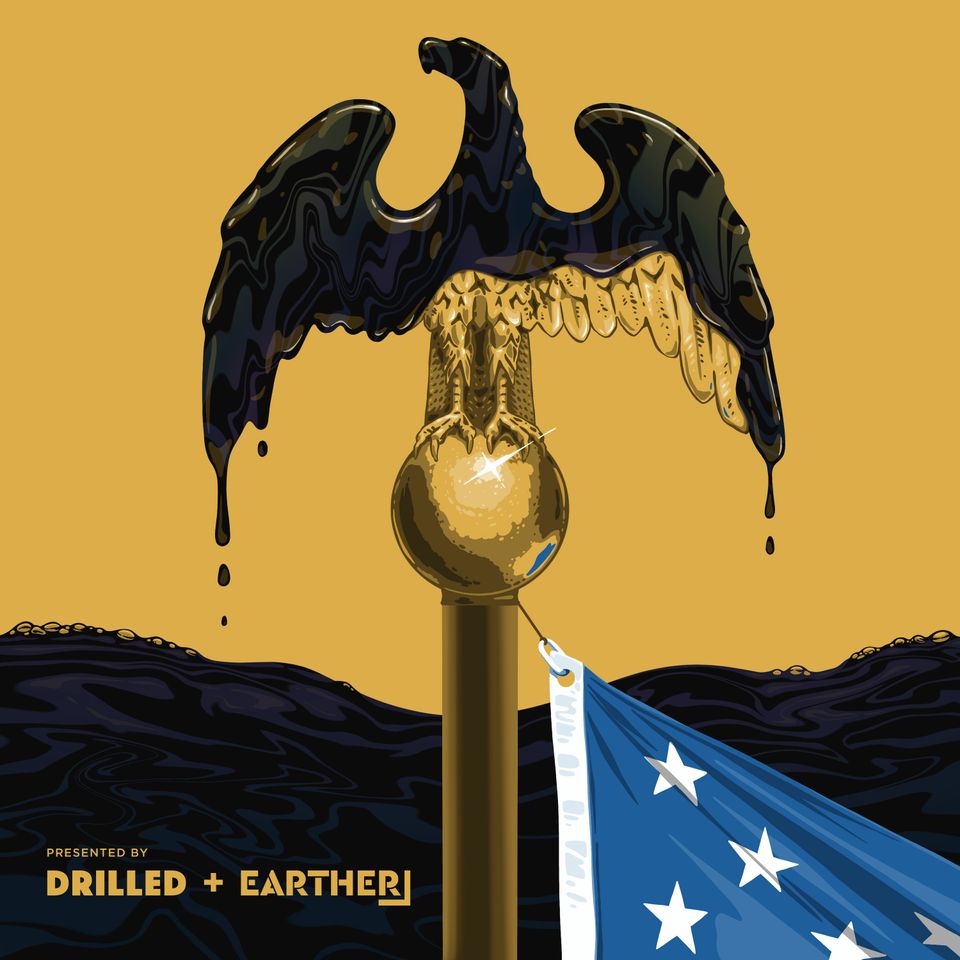
Big Oil infiltrated schools across the country. Earther and Drilled take you inside the campaign to miseducate American students.
Ep 1: The First Day of School
Fossil fuel companies didn't start infiltrating schools when climate change appeared on the scene, they were there shaping the minds of future citizens for decades before then. The industry has been laying the groundwork for inaction on climate since long before this crisis reared its ugly head, limiting how Americans are allowed to think about the environment and the economy. In this first episode of our new miniseries we look at how Big Oil first got into the education game, and why it worked so well. Transcript
Ep 2: Elementary School
Since the 1920s, oil companies have been creating music, activities, coloring books, comic books, movies and more to shape how American kids think about society, the economy, and the environment. Today, we look at their efforts in elementary school. Transcript
Ep 3: High School
In the third episode of our mini-series with Earther, we head to high school, where the fossil fuel industry's efforts to shape Americans' thinking on economics and policy really ramps up. Transcript
Ep 4: We're Going Streaking
We're wrapping up our series with Earther this week, with a look at how fossil fuel companies influence curricula and research at the university level. Transcript
Ep 5: Ben Franta on Big Oil on Campus
Bringing you our entire interview with Stanford researcher Ben Franta on fossil fuel influence at universities because it was just too good not to share. Transcript
Ep 6: So...What Do We Do about This?
Over the last five episodes we've tracked how long the fossil fuel industry has been investing in schools, why, and what impact it's had. In this episode, we look at what can be done, and who's trying to do it. Transcript
Ep 7: Katie Worth on the State of Climate Education in the U.S.
Reporter Katie Worth has been researching climate education in the U.S. for years and that research forms the basis of her new book Miseducation. In this interview we delve into what she found. Transcript
Background Materials
We drew on a whole bunch of primary source documents for this season. Several of them are collected here:
Standard School Broadcast
This is the oldest educational program in America. It was a weekly educational show created by Standard Oil of California, which later became Chevron. Ostensibly about music appreciation and American history, the Standard School Broadcast first went on air in 1928 and was initially heard in 72 schools via the NBC Pacific Network. Thanks to various syndication deals it was eventually heard in thousands of schools across the western United States. It stayed on air until the late 1970s. We've digitized and transcribed a few examples for you:
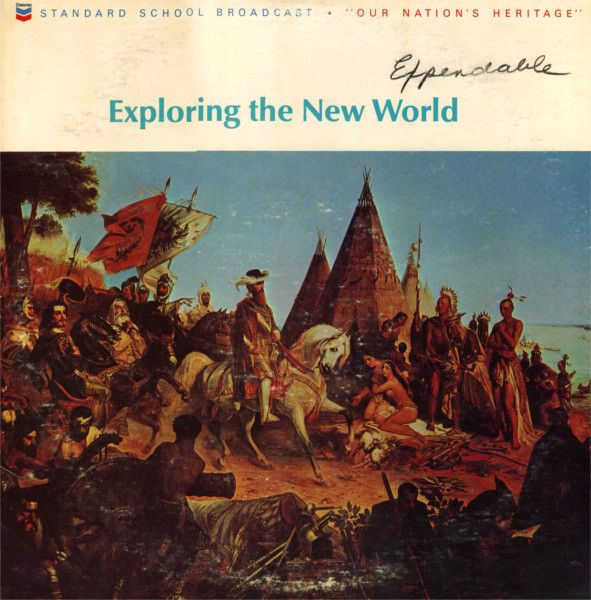
Exploring the New World
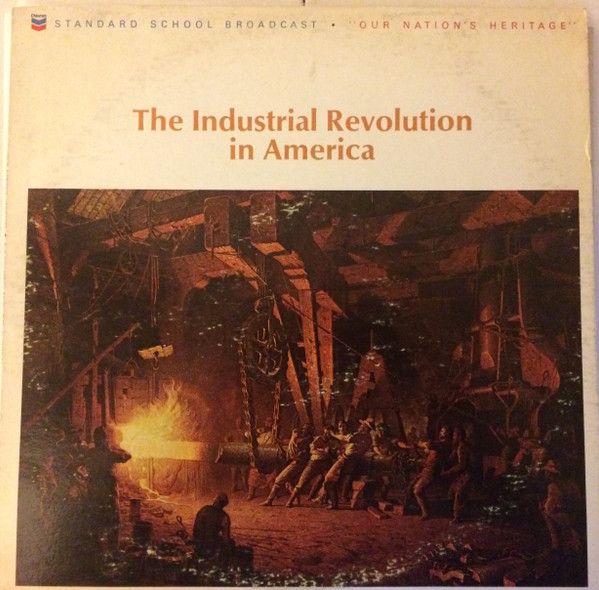
The Industrial Revolution in America
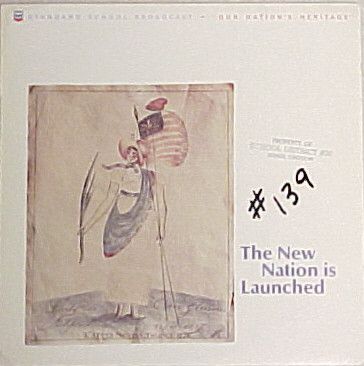
The New Nation Is Launched
Read the transcript
Epcot Center
The photos below are from a comic book that Disney put out in conjunction with Exxon in the 1980s, at the same time that Exxon was sponsoring the Universe of Energy Center at Epcot. Both were aimed at shaping kids’ understanding of energy and the economy.
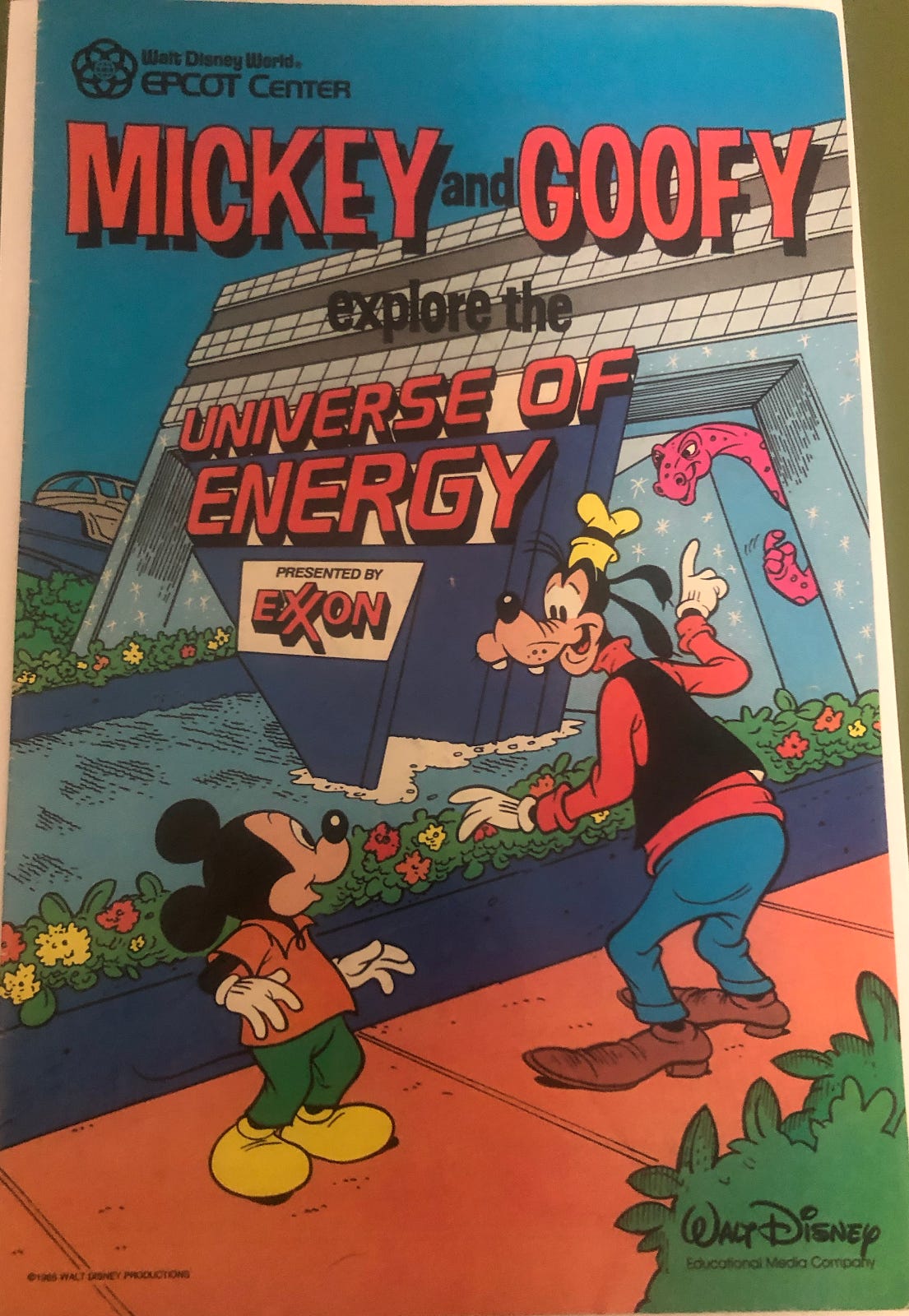
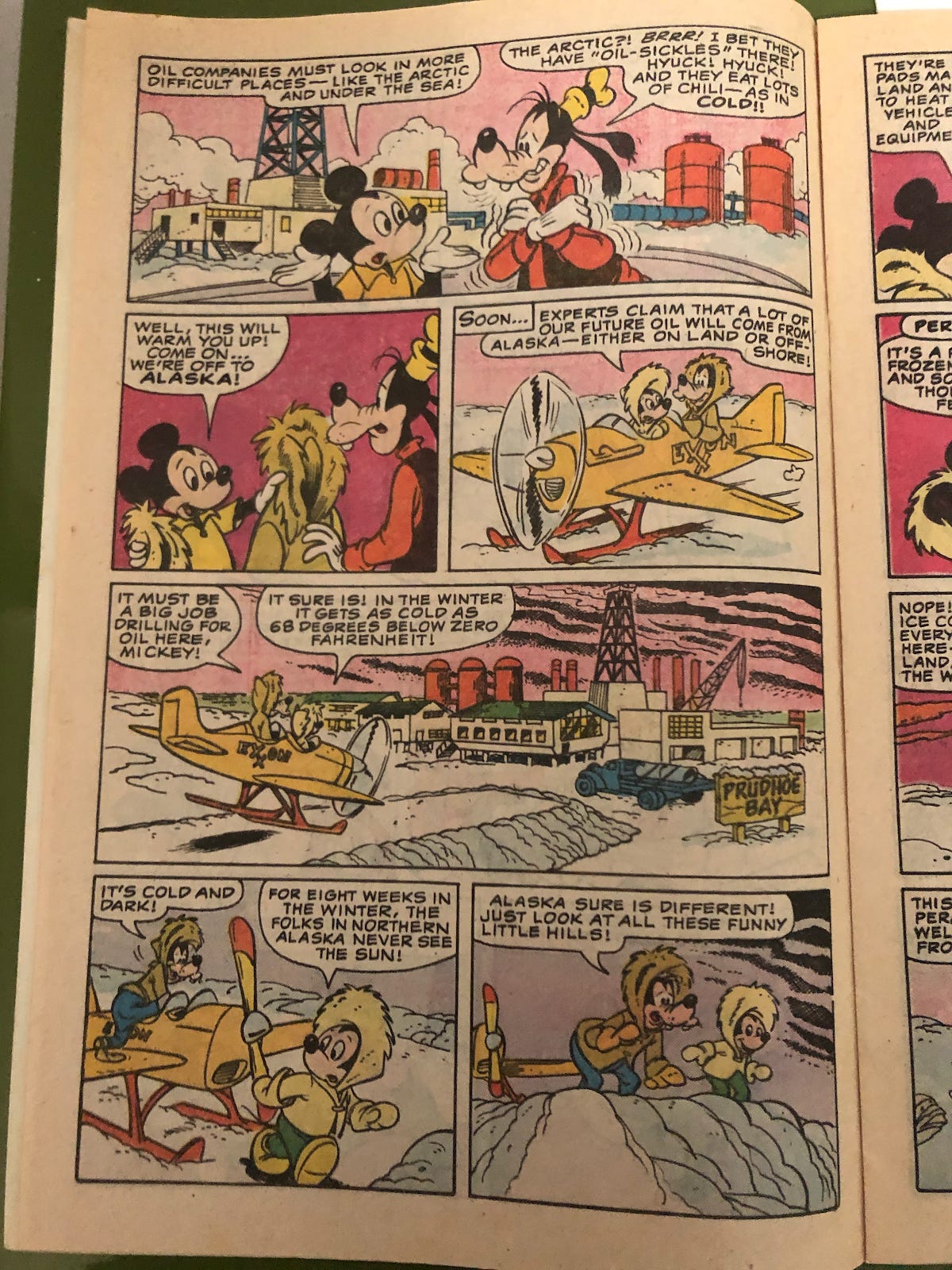
This one has an energy conservation theme—and also makes the point that solar and wind are, you know, meh.
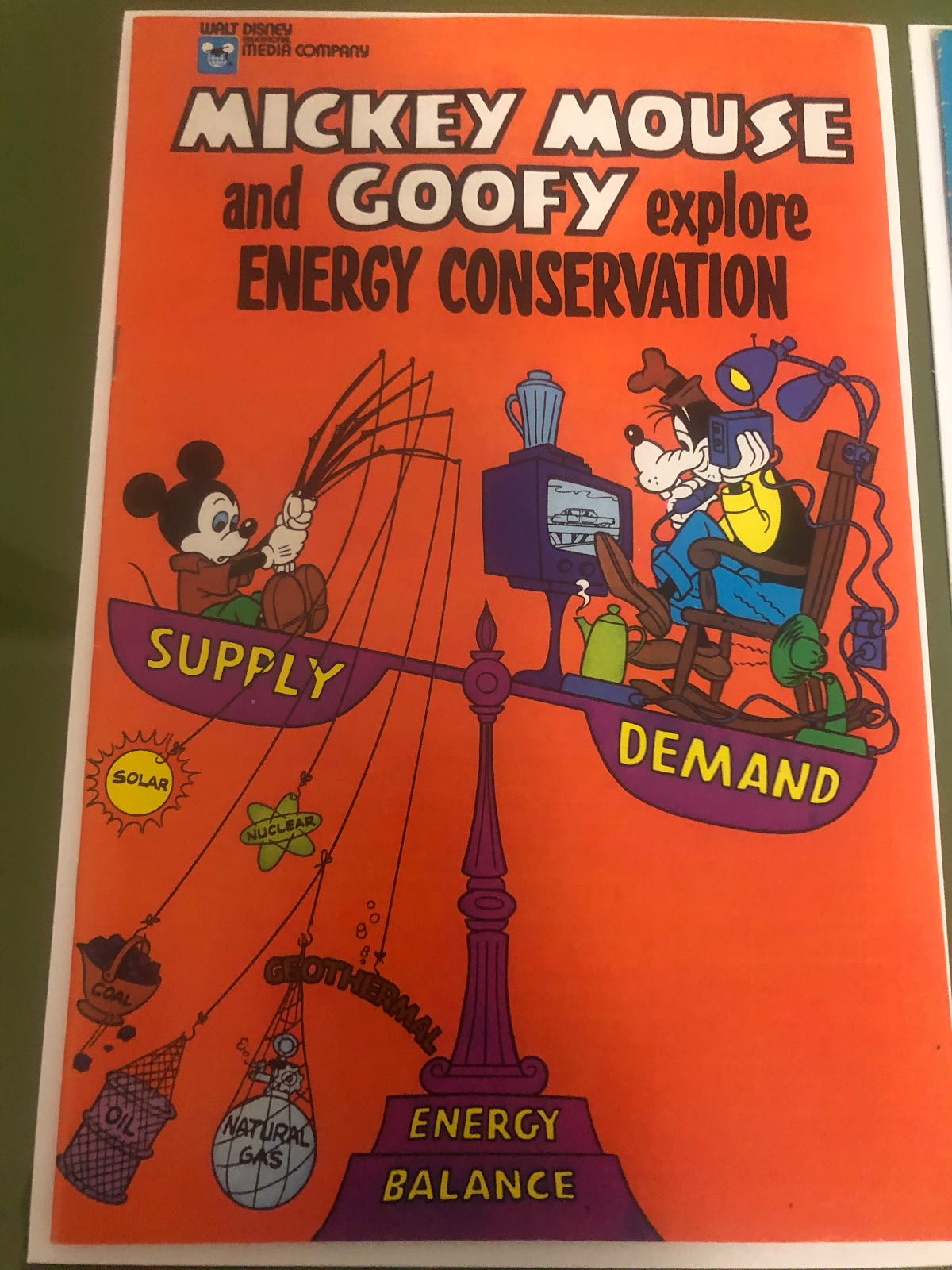
Exxon’s Universe of Energy Center was at Epcot from 1982 through 1996. That’s fascinating, because that’s the exact time span that Exxon went from researching climate change to explicitly denying it. (Exxon’s denial started in the late 80s and picked up steam throughout the 90s). The exhibit was originally intended to be called The Future of Energy, and was supposed to focus only on renewable energy, but when Exxon got involved they changed the scope to include fossil fuels as well, and present an "all-of-the-above" approach to energy. Sound familiar?
The Mochans
In the 1970s, Amoco put out a wildly racist comic book about “The Mochans,” a “primitive” people who wanted to do unseemly things like use renewable energy. The comic was released as part of a study guide for 7th to 12th graders studying economics—which Amoco graciously provided 40,000 copies of to Indiana public schools.
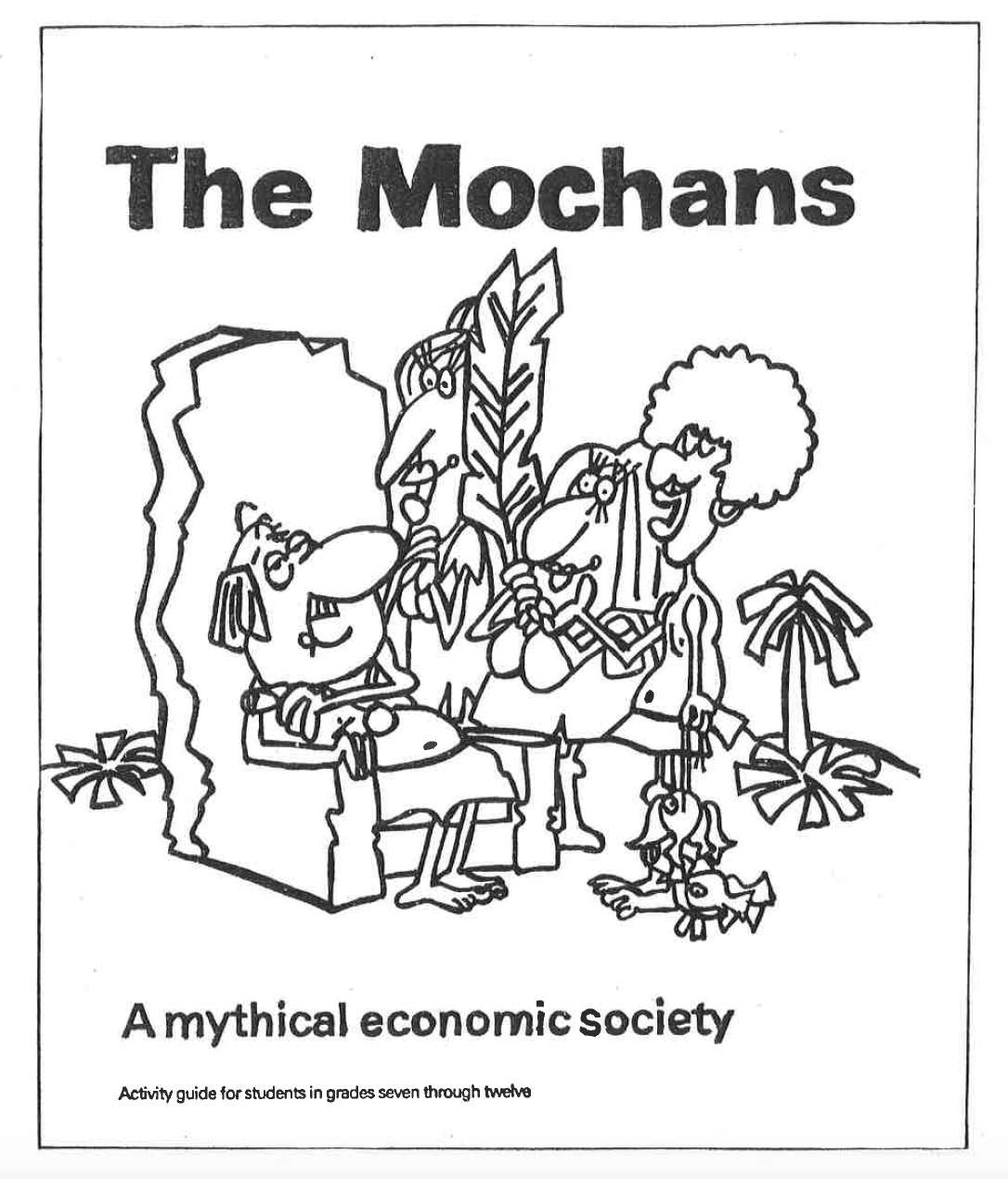
“The industry was teaching kids to be skeptical of regulation, skeptical of the agendas of environmentalists or people who were socially concerned, from their very earliest ages,” Muffett says, “and [they were] constantly emphasizing that anyone who talks about the environment, who talks about human health, should immediately be weighing that and defending it against the economic costs.”
These are the same refrains the fossil fuel industry uses today in its various attempts to shape the minds of young people, both in schools and in the media. And it’s reflected in the way most political pundits seem to think about what’s possible for climate action. You want to preserve a livable world? Well, how much will it cost?
Amoco produced an educational video series as well:
And guess what, Amoco reprised the Kingdom of Mocha in the 1980s with The Return to Mocha
American Enterprise
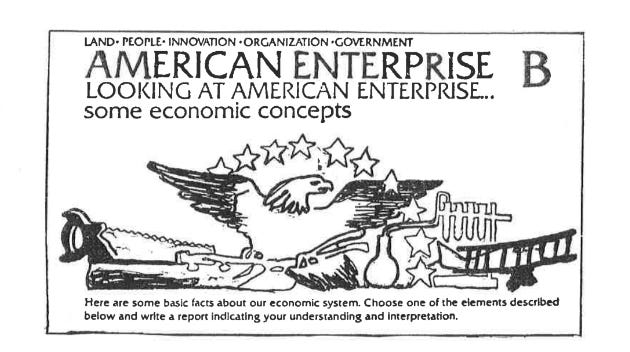
Phillips took a hands-off approach with the film series in order to make sure it would be acceptable in classrooms.
Instead of developing it themselves, the marketing company that produced it for them contacted economists and historians who helped them put together a five-part series that enthusiastically affirms capitalism. And the series was an unmitigated success. It was picked up by 10 different state education TV programs, and more than 50 percent of the country’s secondary schools had booked the series by 1978, two years after its 1976 release. By the end of 1978 it had been seen by more than 5 million American high school students.
The New York Times ran a story on the series in 1976 as it was being released, calling it, “the latest contribution to the ongoing business effort to interest the American people in the free‐enterprise system.” (See our post on Earl Newsom for more on that front).
